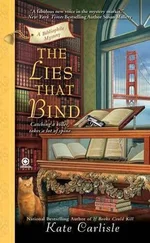They sit in silence. Listen to the sound of wet mouths chewing wet meat. The second hand ticks.
Miriam was born a butcher’s daughter. Her whole life had been lived among carcass and flesh; the thump of the steaks as they were cut from the flanks of the beasts. Her brothers and uncles wrapping up slabs in white paper, her dad in his apron. The first shop in Leyton. Her father was Raymond. Her mother was Annabelle. Her mother worked as a nursery teacher and loved her husband and children above all else. They’d met during the war. Ray was a pilot, and Annabelle waved the planes down, held up the bright flags that would guide the descending aircrafts back to solid ground. They were married on the aircraft carrier where they were deployed, somewhere in the middle of the Indian Ocean. Miriam was the last-born, youngest sister of a proud bunch. Many years younger than her three elder brothers. Annabelle had almost given up hoping for a girl.
When Miriam arrived, she was her mother’s pride and joy, and Annabelle did her best to keep her daughter far from the shriek of the abattoirs and the swish of her father’s cleaver. She went to a nice school, her friends were clean, polite children. They lived in a green suburb in east London in a simple, homely house with a sweet-smelling garden. But Miriam was drawn to the floor of the butcher’s shop. She found herself lingering there, begging her brothers to not tell their mother they’d seen her.
At bedtime, Annabelle would sit at the head of her daughter’s bed, showing her postcards of ballerinas that she kept in a special envelope that lived in a drawer in her dressing table. She would whisper the names of the ballerinas, and which ballets they were dancing in in the pictures.
‘To be a woman, you must struggle, like the ballerina struggles. You have to work hard. It is painful work. And when you do it right, it will look effortless. But where we’re different from the dancers, my sweet, is that we will never be applauded for getting it right.’
Miriam listened quietly, as she always did, but she couldn’t make sense of a word of it. Her heart pumped red with butcher’s blood.
While her brothers were free to work and study and take girls out and smoke cigarettes, she was expected to follow her mother’s example and be careful and quiet and kind. She hit puberty and learned to feel shame. Began to wish that she was different. Came to hate the noise and stench of her father’s shops. She came to see that life was not what you made of it, but what you persevered with. She felt she wasn’t quite enough. Not a proper girl somehow.
She turned seventeen and moved away from her parents’ home. She crossed the river and found a room above a pub in Camberwell. She took a job licking stamps and stuffing envelopes at an accountant’s firm. She hated every minute but she made the rent with cash to spare. She found another job in the evenings as a waitress in the bingo hall and started saving diligently so that when she turned eighteen she could buy herself a motorbike. Her mother hated the room above the pub, the motorbike, the jobs. She couldn’t understand what had happened to her precious daughter. She wanted her Miriam to meet a nice man and get settled.
Miriam read voraciously at night, listened to albums by her favourite bands — the Jam and the Clash and the Buzzcocks and Patti Smith. She wore tight black jeans and boots and men’s jackets. She studied movies, she studied poetry. She studied people in the bingo hall. She revved her engine and drove the bike down to Brighton at weekends. She slept with men she liked but didn’t want the hassle of a boyfriend. She had a group of friends she loved who worked as nurses and receptionists and life models. They went out dancing at night and walked each other home when the morning came.
When she turned twenty-two she was living in a cold-water squat in King’s Cross with two Marxist postmen, a tube driver and a lab technician. They imagined it to be a commune, but Miriam found herself doing the majority of the housework, the cooking and the killing of the mice. She was working on the front desk of the library at King’s College, doing the late shift. She was saving up to travel. She wanted to see the mountains of Afghanistan. She spent her days nannying for well-to-do families in Hampstead and her evenings at the front desk of the library, reading textbooks.
Graham was studying law at King’s. In the evenings he pored over books in a hash cloud, memorising cases. At first they nodded at each other, and soon the nods turned into smiles. When it was closing time, Miriam began to look forward to waking Graham up and telling him he had to go. The third time it happened, she asked him out for a drink. They found a late-night seedy King’s Cross bar and giggled easily.
He was clumsy and charming and they lingered in the corridors when she was making her rounds, delivering the books back to their shelves. She found herself staring at pages and not being able to take in a word, just waiting for his shape to loom through the turnstiles.
She took Graham out on her motorbike one evening. He fell off before they’d even started and seeing him there, fragile and awkward, sprawled in the road, laughing like a baby, she felt something happening in her guts that hadn’t happened before.
She went away travelling, he finished his studies. They wrote each other long letters. Graham was frustrated by the distance. He wanted them to move in together, start a life, the kind of life that couples are supposed to have. But she had a world she wanted to see. He didn’t know if she would come back to him or not. But she did. And the minute she settled, he forgot to love her in the same way.
For the next twenty-two years Miriam threw herself into being a housewife and a mother and it flooded her with a happiness she’d never known. But the girl she used to be crept around inside her in her quietest moments.
Her only daughter, Harriet, had always been a tomboy. She wanted her hair cut short and didn’t play with girls’ toys or wear girls’ clothes. Her boyishness, harmless at eight, seemed stranger as she got older. At twelve she was getting into trouble all the time; violence followed her around in a way that shocked Miriam. Harriet would come home bloody and bruised and not say a word, just stagger into the kitchen for the frozen peas and then go quietly up to her room. She grew into a very private and independent teenager. Miriam didn’t know how to reach her. Harriet hated going shopping; she couldn’t bear even setting foot inside a clothes store. She was too embarrassed to walk over to the boys’ section where they sold the shirts she liked, and standing in the girls’ section made her feel like an alien. Nothing ever fitted, and she’d think it was her fault. She hated the hairdresser’s too; in fact, Miriam noticed, she found most public places difficult.
Miriam was sure it was just a matter of time before Harriet met the right man, in the way she’d met Graham, and then she would settle down and become a wife and a mother and realise that was where true happiness lived. It wasn’t that she didn’t believe that her daughter thought she was gay. It was more that she didn’t believe that women could be, really, deep down.
Miriam gradually became stuffy with age and blinkered by comfort, and told herself that nothing was drastically wrong and things would work out OK in the end.
‘So, what have you been up to then, Pete? Any developments on the work front?’ David looks at him over the top of his glasses, a piece of spinach sticking out of his mouth, chewing.
‘I had two weeks moving office furniture. That was good. And then I set up an eBay account for a friend’s nan and helped her sell off some of her late husband’s suits. She gave me fifty quid. So, that was good.’ He talks to the piece of spinach.
Читать дальше












